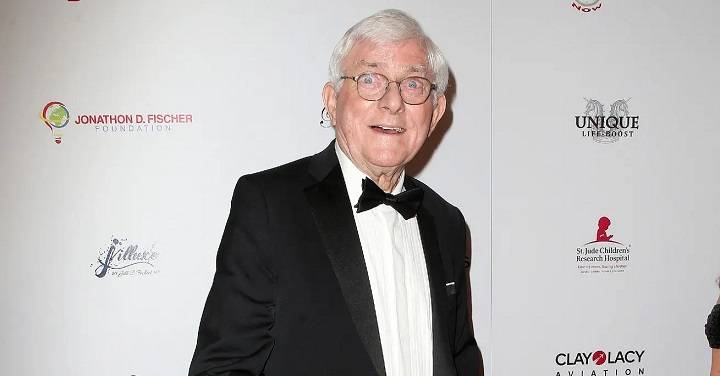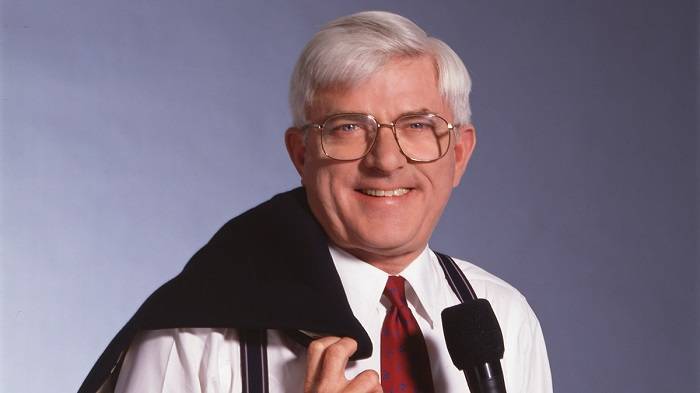Phil Donahue is a name synonymous with American television, particularly in the realm of talk shows. As the creator and host of “The Phil Donahue Show,” he revolutionized the talk show format, emphasizing audience participation and tackling controversial and often taboo subjects. This comprehensive guide will delve into the essence of Phil Donahue, explore the benefits of his contributions to media, legal considerations surrounding his work, popular moments in his career, how to engage with his content, safety and security tips, alternatives, and his legacy in the future.
What is Phil Donahue?
Phil Donahue, born on December 21, 1935, is an American media personality, writer, and producer. He is best known as the creator and host of “The Phil Donahue Show,” the first talk show format to invite audience participation. The show, which aired from 1967 to 1996, was groundbreaking in its approach to television, blending news, entertainment, and audience interaction in a way that had never been done before.
Donahue’s show covered a wide array of topics, ranging from politics and social issues to entertainment and personal stories. He wasn’t afraid to address controversial subjects such as gay rights, abortion, and race relations, bringing these discussions into American living rooms and encouraging open dialogue.
Benefits of Using Phil Donahue’s Format
The talk show format pioneered by Phil Donahue brought numerous benefits to both the television industry and its audience:
- Engagement and Interaction: Donahue’s format introduced the concept of audience participation, allowing viewers to engage directly with the topics being discussed. This interactive element made the show more relatable and dynamic.
- Diverse Perspectives: By tackling controversial issues, Donahue provided a platform for diverse perspectives. His show featured guests from all walks of life, giving a voice to underrepresented communities and fostering understanding among viewers.
- Educational Value: The show’s content was not just entertainment but also educational. It informed viewers about critical social issues, encouraging them to think critically and form their own opinions.
- Social Impact: Donahue’s approach to addressing taboo subjects helped to destigmatize them. By bringing these conversations to the forefront, his show contributed to societal change, promoting tolerance and acceptance.
- Pioneering the Talk Show Genre: The success of “The Phil Donahue Show” paved the way for other talk shows, influencing the format of programs like “The Oprah Winfrey Show” and “Dr. Phil.” His legacy is evident in the talk show landscape that we see today.
Legal Considerations
Phil Donahue’s show often pushed the boundaries of what was acceptable on television, leading to several legal considerations that are worth noting:
- Defamation and Libel: As the show dealt with controversial topics and featured public figures, there was always a risk of defamation claims. Ensuring that discussions were factual and not slanderous was crucial to avoiding legal issues.
- Freedom of Speech vs. Censorship: Donahue’s show often walked the fine line between freedom of speech and censorship. Balancing the need to discuss sensitive topics with the potential for offending viewers or violating broadcasting standards was a constant challenge.
- Guest Consent and Liability: Given the show’s format, where guests were often regular people sharing personal stories, it was important to secure proper consent. The show had to ensure that guests understood the implications of appearing on national television.
- Broadcasting Regulations: The show had to comply with various broadcasting regulations, including those related to content, advertising, and audience participation. Navigating these regulations while maintaining the show’s integrity was key to its longevity.
Popular Phil Donahue Moments
Throughout its nearly three-decade run, “The Phil Donahue Show” had several memorable moments that left a lasting impact:
- Gay Rights Advocacy: Donahue was one of the first to give the LGBTQ+ community a platform on national television. His interviews with gay rights activists were pioneering, contributing to the broader acceptance of LGBTQ+ individuals.
- Interviews with Celebrities and Politicians: Donahue interviewed a wide range of celebrities and politicians, often asking tough questions that others avoided. His interview with Ayn Rand, for example, is still referenced for its depth and intensity.
- Confronting Racism: Donahue did not shy away from discussing race relations, often featuring guests who were at the center of racial controversies. These episodes played a role in educating the public about the complexities of racism in America.
- Feminism and Women’s Rights: The show also tackled issues of feminism and women’s rights, giving a voice to feminist leaders and discussing topics like workplace equality, reproductive rights, and domestic violence.
How to Use Phil Donahue’s Content
Engaging with Phil Donahue’s content today is a matter of accessing his past shows, interviews, and writings. Here’s how you can explore his work:
- Watch Archived Episodes: Many episodes of “The Phil Donahue Show” are available online through various streaming platforms and archives. Watching these episodes provides insight into the social and political issues of the time.
- Read His Books: Phil Donahue has authored several books, including his autobiography “Donahue: My Own Story.” These writings offer a more personal perspective on his life, career, and the ideas that shaped his work.
- Explore Interviews and Documentaries: Donahue has been featured in numerous interviews and documentaries, where he discusses his career, the media industry, and his views on contemporary issues. These can be found on platforms like YouTube and in various documentary films.
- Participate in Discussions: Donahue’s legacy lives on in the discussions he sparked. Engaging in online forums, reading articles, and participating in social media conversations about his work can provide a deeper understanding of his impact.
Safety and Security Tips
When exploring Phil Donahue’s content, especially online, it’s important to be mindful of safety and security considerations:
- Use Reputable Sources: Ensure that you are accessing Phil Donahue’s content from reputable and legitimate sources to avoid misinformation or pirated material.
- Protect Personal Information: If engaging in discussions or forums about Phil Donahue, be cautious about sharing personal information. Online communities can sometimes be targeted by trolls or malicious users.
- Be Respectful of Diverse Opinions: Given the controversial nature of many topics Donahue covered, discussions can become heated. Approach conversations with respect and an open mind, acknowledging that others may have different perspectives.
- Report Inappropriate Content: If you come across content that misrepresents Donahue’s work or is harmful, report it to the appropriate platforms to help maintain the integrity of discussions.
Alternatives to Phil Donahue’s Format
While Phil Donahue’s format was groundbreaking, there are several alternatives that have emerged over the years:
- The Oprah Winfrey Show: Oprah Winfrey took inspiration from Donahue and expanded on his format, adding a more personal and empathetic touch. Her show became one of the most successful talk shows in television history.
- The Ellen DeGeneres Show: Ellen’s show, while lighter in tone, also focuses on audience interaction and often covers social issues, reflecting Donahue’s influence in a more modern context.
- Dr. Phil: Dr. Phil McGraw’s show, produced by Oprah Winfrey, follows a similar format to Donahue’s but focuses more on personal issues and psychological advice.
- Modern Day Podcasts: In the digital age, podcasts have taken over as a popular medium for in-depth discussions on various topics. Shows like “The Joe Rogan Experience” and “WTF with Marc Maron” reflect Donahue’s influence in a modern, more informal setting.
The Future of Phil Donahue’s Legacy
Phil Donahue’s impact on television and media is undeniable, but what does the future hold for his legacy?
- Continued Influence on Media: Donahue’s format continues to influence talk shows, news programs, and even online content creators. As media evolves, the principles he introduced—audience engagement, tackling controversial issues, and providing a platform for diverse voices—will remain relevant.
- Educational Value: Donahue’s work is studied in media and communications courses, ensuring that future generations understand the importance of his contributions to television and public discourse.
- Digital Archiving: As more content becomes digitized, there is a growing movement to preserve episodes of “The Phil Donahue Show” in online archives, making them accessible to a wider audience.
- Documentaries and Biopics: There is potential for documentaries or biopics about Donahue’s life and career, further cementing his place in media history.
Related Post:
How Many Seconds in a Day: A Comprehensive Exploration
Phoenix Suns vs. Minnesota Timberwolves: Analyzing Player Stats in Their Latest Matchup
Phil Donahue is a towering figure in the world of television, whose innovative talk show format has left a lasting impact on media and society. By exploring his work, understanding the benefits of his approach, and considering the legal and safety aspects, we can appreciate the profound influence he has had on public discourse. As we look to the future, Donahue’s legacy will undoubtedly continue to shape the way we engage with media, ensuring that his contributions are remembered for generations to come.





